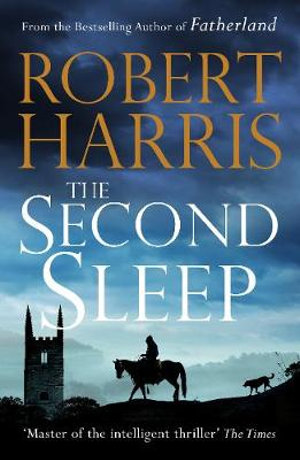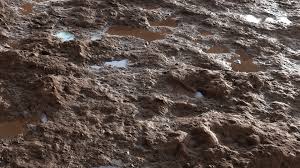The Second Sleep (2019) by Robert Harris.
GoodReads meta-data is 330 pages, rated 3.72 by 486 litizens.
Genre: Mystery.
Verdict: All trip and no arrival.

The opening invokes Chaucer’s Fourteenth Century world of the Canterbury Tales with the young prelate, Fairfax, riding through rain to a distant valley where the local priest has died. The job is to bury the priest in a Christian fashion, reassure the locales, and return within two days. Ah huh. The weather is miserable and gets worse. The rain leads to landslides and he has difficulty in finding the valley and getting into it. I felt wet just reading it.
The language and mōres are archaic. The Christian Church is almighty and Fairfax is one of its lowliest servants. But even so he is set apart from the primitive villagers, none of whom can read or write, and if cleanliness is next to godliness, they are a long way off. Work and prayer are their only pass times. A wheeled wagon is the most advanced technology they have and there are few of those.
In order to deliver a eulogy for the dead parson, Fairfax tries to learn about him by inquiring of the locals, and examining his belongings. It is in the latter that the plot thickened for he finds strange objects, and many forbidden books on the ancients. Among these relics are plastic items and a small sheet of metal with that most dreaded of symbols on it, an apple with a bit taken out of it! [Gasp!]
In further investigation Fairfax learns that the parson made no secret of his fascination with The Time Before and collected relics while rambling through the valley. Yet the mere possession of a plastic straw would lead to his excommunication or worse – he could be made to watch Pox News. Did he rely on the isolation of the valley to shield him from the long arm of the Church in ferreting out heretics.
Yes, an apple minus a bite. Get it yet? Ask Bill Gates. I had to read the first reference to plastic twice for the light to go on.
From this point on the text becomes more explicit about the cataclysm God visited on humanity because of too much or too little science centuries ago. The Church rejects all science and technology, teaching, nay, enforcing quietism and acquiescence in God’s mysterious ways – infant mortality, women dying in child birth, cuts leading the fatal infections, and the like. All very Fifteenth Century, post apocalypse.

While Fairfax recoils from the parson’s heretical pursuits, the suspicion grows that the parson was murdered. That seems farfetched until Fairfax finds the local Church registers have disappeared, four massive volumes recording the births, marriages, and deaths in the valley for a millennium. This mystery and the consequences of the weather lead him to stay in the valley longer than planned.
While some of the locals try to urge him on his way, none too subtlety, others seem to want him to stay. For the latter is it because they want a priest, or is it because they want something from him. He cannot tell.

Thereafter it is all trip and no arrival. There is much rain and mud as Fairfax and company try to dig up the past, though quite why is lost on this reader. It is Ypres without the context.
E. M. Forester used this premise in a short story, ‘The Machine Stops’ as did Isaac Asimov in Foundation and Empire without the mud. In this case The Cloud failed and everything was lost. There is no substitute for saving to the local drive, and backing up on hard disks galore! Though that is easier said than done.
